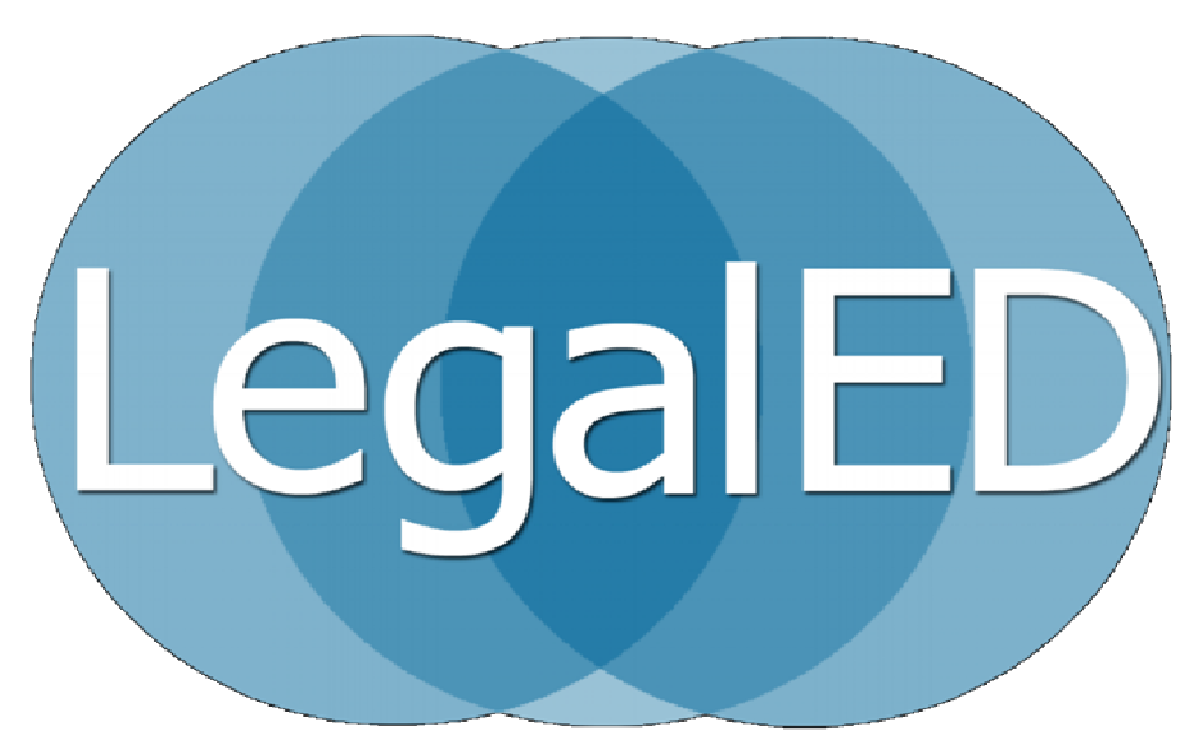ILT 2015
Pathways to Practice Part 2
Featuring: Jill Engle, Courtney Kiehl, Shannon Salter, Andy Spalding
Jill Engle
Talk Title: Helping Your Law Students Find Their Professional Identity Through Reflective Learning: Professor’s Perspective
Talk Summary:
What is unique about my pedagogy is its focus on self-awareness—my own as well as my students’. This talk features some of my in-class PowerPoint slides, tweets my student and co-presenter Courtney and I have sent about our work, quotes from my forthcoming article on this subject, and tangible objects. You will also see examples of reflective tactics in my lecture-course teaching, where I use non-traditional policy exam questions, group exercises, and quick-writes.
In closing, I want to point out that this particular student-teacher relationship has manifested reflective learning growth has shown up in other work, much of it interdisciplinary and innovative. For example, we Skyped her into a conference I presented at in October 2014 at Pepperdine regarding college student safety, and she is providing key student leadership in a major research and policy project I am part of here at Penn State on campus gender-based violence. As such, Courtney has been tapped by our law school Dean, the overall campus Vice Provost, and our Weiss Chair in the Humanities for input into Title IX and related issues and embodies the student-activist and budding lawyer-activist that many law students aspire to be.
Engle directs Penn State Law's Family Law Clinic, which represents clients, and does policy work, on domestic violence and other family law issues. Her scholarship examines the rights of domestic violence victims, economic rights of divorced women, international domestic violence issues, and best practices in legal education. Professor Engle has done public interest work for decades, including with the National League of Cities and the pro bono team at Morgan Lewis in Washington, D.C. during law school here at American University, Engle was granted a Marshall-Brennan fellowship to teach Constitutional Law in a disadvantaged D.C. high school. She took her first yoga class in AU’s main campus gym in 1999, and credits her daily yoga practice to maintaining sanity on all fronts. Her “co-presenter,” Penn State 3L student Courtney Kiehl, first introduced herself to Engle as a 1L not in the classroom, but in a State College yoga class. Namaste.
Courtney Kiehl
Talk Title: Helping Your Law Students Find Their Professional Identity Through Reflective Learning: Student’s Perspective
Talk Summary: Prior to my experience in Penn State’s Family Law Clinic, I had never been challenged to think about what kind of lawyer I was going to be. Like every student, I had thought about what type of law I wanted to practice, but not what my style of lawyering would be. Through my clinical experience, I learned the importance of understanding the way I view situations and the way I think of client issues in best serving their needs. In this talk, I will discuss how my clinical Director used a combination of assigned readings, journals, and individual meetings to reflect on, identify, and develop my professional identity and why it is a lesson every law student should learn before graduating.
Courtney Kiehl is a third-year student at Penn State Law. For the past eleven years, Kiehl has been deeply committed to victims’ rights issues and a passionate activist in the movement toward ending sexual and domestic violence. She has been involved with various organizations including founding a non-profit with a mission to provide a forum for victims of abuse to share their stories. After graduating from UCLA, Kiehl gravitated toward Penn State Law because she saw an opportunity to continue to advance her work in victims’ rights. Since her time in law school, Kiehl has worked with victims of domestic violence in Pennsylvania and California, interned at the National Crime Victim Law Institute, and been active in a national student movement concerning Title IX. Kiehl largely credits her fantastic law school experience to her professor, mentor, and co-presenter Jill Engle.
Shannon Salter
Talk Title: Unprecedented: Teaching Law Students to Think Like Law Reformers
Talk Summary: Process is boring. But process decides access to our justice system; who’s in, who’s out, how long they’ll wait, how much they’ll pay, and what kinds of paper they’ll produce along the way. Process is both a cause of, and a cure for, the access to justice crisis. Our classroom focus on caselaw ignores the fact that only 2% of cases make to trial, and then into the casebooks. Who are the people behind the other 98% and how would the law be different if they were included? You can’t change what you can’t see, and so this talk will identify ways to make process visible in our classrooms, helping students think critically and creatively about giving effect to important legal principles through unprecedented change to legal process.
Shannon Salter is the Chair of the Civil Resolution Tribunal, Canada’s first online tribunal. Shannon has served on a number of administrative tribunals, practiced as a litigation lawyer, and has been actively involved in providing pro bono legal advice and representation throughout her career. She teaches administrative law at the University of British Columbia’s Allard School of Law as an adjunct professor. As the mother of two small daughters, her free time is spent wiping noses and asking people to get off things.
Andy Spalding
Talk Title: Are You Happy Now? Stimulating Student Reflection on Professional Fulfillment
Talk Summary: This talk will look at empirical evidence on fulfillment in legal practice, and how to turn that evidence into criteria for choosing jobs and directing careers.
Andy Spalding is Associate Professor at the University of Richmond School of Law, where he teaches international business law with a focus on anti-corruption law.




